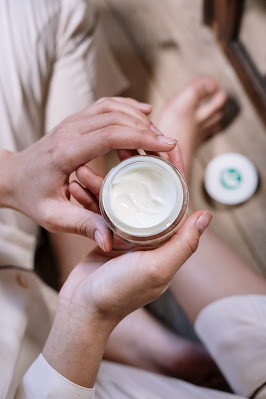Benefits of Medical Creams in Prepackaged Form
Prepackaged
medicinal creams may be the best course of action when patients come to see you
for a condition including itching, rashes, or allergies. Typically, an ointment
gets prescribed, after which the patient visits the pharmacy to get the
prescription. They return home and use a haphazard amount of cream to treat
their exterior issue. Although your prescription specified how much they should
apply, people frequently disregard your recommendations. Discover how practice
can profit by reading on.
●
Precise dosing
Like non-cream drugs, prepackaged medical creams like vitamin C cream for skin come in
individual doses. As a result, patients won't need to worry about removing too
much ointment from the tube when applying it. With prepared creams, users open
the container, take out the individual dose, and use it. Because accidental
overuse is not a problem, this procedure is safer for the patient.
●
Quick availability
When experiencing an itch, rash, or allergic reaction, the
patient desires prompt treatment. They don't want to drive there and wait in
line to get some relief from their ailments. Going to a pharmacy puts other
customers and pharmacy personnel at risk if their skin condition gets
communicated. In its place, you can offer patients relief at the point of care.
Even their first dose might get given to them under your watch.
●
Saving Money with Prepackaged Medical Creams
There are probably several jars of unfinished creams like vitamin C cream for skin or ointments
in the medicine cabinets of your patients. Most of them are just halfway full,
often because the patient squeaked out too much cream rather than because they
required all of it.
Patients can receive doses of pre-packaged lotions and
ointments to solve their problems. That means that neither you nor your patient
needs to buy more than what is required. You can save a tonne of money by doing
this. Patients who don't take their medication incur costs as well.
Prepackaging can aid in avoiding this issue.
●
Prepackaged medical creams reduce waste.
Over five billion dollars in unopened, unused
pharmaceuticals get reportedly squandered annually. By simply prescribing what
the patient needs and nothing more, this can get prevented. The patients'
non-compliance is partly to blame for this waste. They pick up their
medications, but for reasons, they don't take them. You get better equipped to
track patient compliance by dispensing ointments at the point of treatment. And
if you discover that a patient is not complying, you can follow up with them.
●
Avoid unfavorable effects
Using topical treatments can result in undesirable side
effects. For instance, when a patient quits taking a cream containing steroids,
withdrawal symptoms may develop. Patients who misuse their prescription drugs
run the danger of both local and systemic side effects. Or, if the pharmacist
did not discuss side effects with them, they might not be aware of the symptoms
to check.
When you offer medications at the point of treatment, you
can describe potential side effects. You can explain to them whether
experiencing a stinging at first is normal and whether it should go away over
time.



